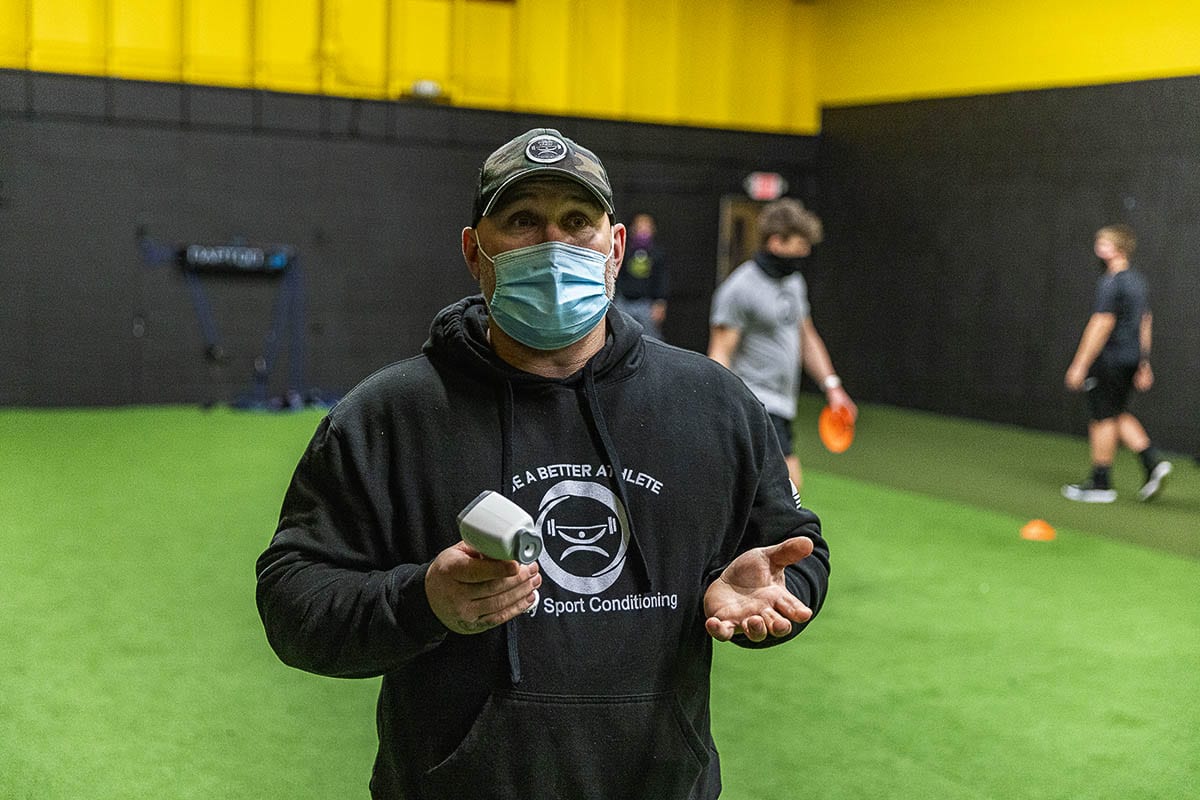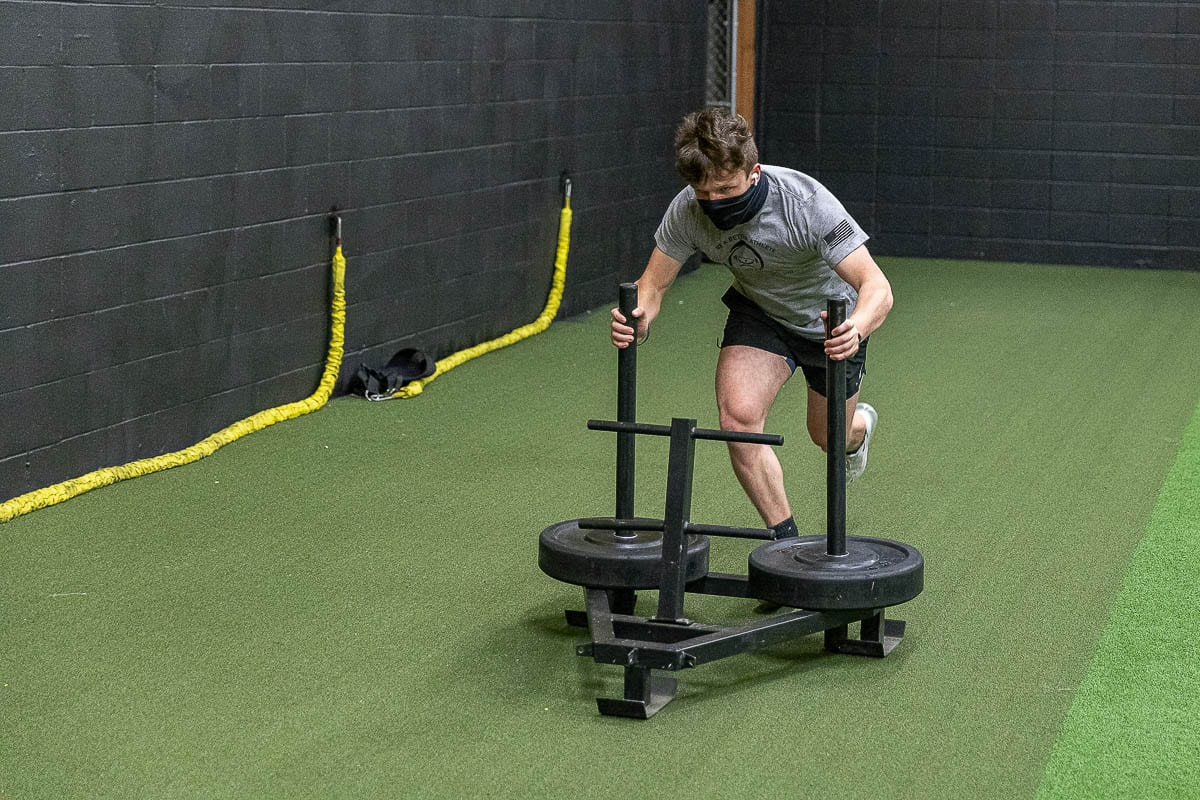Cory Gilday says the gym industry is safe
Clients start the process of going to the gym hours before their sessions.
They check in on an app on their phones, filling out an online form with questions regarding their health.
Sniffles? A headache? Or any symptom of feeling under the weather?
Don’t come to the gym.
When a client arrives at Gilday Sport Conditioning, the athlete washes his hands and has his temperature checked.
Cory Gilday records the information.

He wants to make it as safe as possible, operating during this pandemic, because he knows that gyms all over the country are among the businesses that have been singled out by governors and health departments.
Last week, in a plea on his Facebook page, Gilday noted that the data is “overwhelming” that gyms do not have a high occurrence rate of COVID-19. Many gyms have “robust” contract tracing built into their business models. The services that gyms provide help keep people healthy.
“If we’re going to use science and logic, use it,” Gilday wrote. “Don’t let fear cloud your thinking.”
He noted that the International Health, Racquet, and Sportsclub Association fears that 25 percent of gyms could close by the end of 2021.
Gilday says he is one of the fortunate gym owners during the pandemic. His business model works perfectly with just a few athletes at a time at Gilday Sport Conditioning, located at 7588 Delaware Lane in Vancouver.
Under Phase 1 guidelines of the state’s latest recovery plan, Gilday can have up to 11 athletes at his facility. He limits the number to seven.
These days, every client has to make an appointment for a workout. That way, Gilday ensures no more than seven at one time. He also makes sure there is time to clean his equipment daily.
But Gilday worries about the industry as a whole, as well. Larger facilities cannot bring in enough clients to make the finances work. Some smaller gyms do not have enough space so they remain closed, making no money at all.
“I just see a lot of people who are pandemic or business experts who say they are following data, but they are not following data. They’re picking and choosing,” Gilday said.
The data suggests, he said, that gyms should be open. And, he asked, if the government is so concerned about crowds, why are big-box home improvement stores still open? Or huge shopping facilities?
Gilday acknowledges that he has been an outspoken critic of Jay Inslee, Washington’s governor. Lately, he is trying to be more empathetic, realizing that there are no easy answers in dealing with COVID-19.
“In the springtime, we didn’t know. We really didn’t know. I understood the fear,” Gilday said. “But I had a theory … we could be one of the safer places.”
Now, Gilday knows. The IHRSA has posted studies from numerous states that opened gyms in the summer.
Gyms should be highlighted as among the safest of businesses, Gilday said.

Attention to detail has been increased due to COVID in regard to cleaning in the industry. Many gyms have invested filters in their HVAC units, he said. And gym managers know who is in their gyms at all times based on check-in policies.
Does a big-box store know every person who enters the building?
If one of Gilday’s clients goes out of state, say an athlete competes in a tournament in Arizona, Gilday requires the athlete to stay away from his gym for at least five days upon returning to Vancouver. Stores and restaurants don’t have any of those safeguards in place.
That’s Gilday’s pitch for the industry.
As far as his own business, he has adapted, and so have his clients.
“I work with five to seven athletes at a time in a personalized environment,” Gilday said. “We do speed development, power, injury prevention, post-rehab work, conditioning.”
An athlete knows his workout even before he comes into the gym. It is on an app on the phone.
“If I need to, I can pivot to a home workout right away,” Gilday said.
Gilday Sport Conditioning has been open since 2014. Gilday works with high school athletes from all over the county, and he has adults as clients who just want to get in, or stay in, shape.
“What I do at Gilday Sport Conditioning (is provide a) personalized sports performance strength and conditioning program that’s tailored to your needs,” Gilday said.
That includes guidance on nutrition, as well.
“It’s a scientific based approach. I’m not doing gimmicks. We’re not doing something because it looks cool on Instagram,” said Gilday, who has a degree in exercise science and a masters in exercise physiology and was the strength coach at Concordia College before it closed last year.
“I really pride myself on constantly learning. I want to give you my best practices all the time,” Gilday said. “As a client, I want you to be educated on how and why I do something.”




